
This is an amazing story on how Germany uses detectives to root out lying “refugees” from the ones who really mean well:
“What [the program] has achieved, beyond doubt, is a more limited political goal: to begin to assure Germans that their government’s refugee policy is not simply the absence of a policy. One perplexing question for liberals worldwide is why conservatives seem not to care about the data suggesting that over time, refugees improve the countries that receive them. For one, they can relieve demographic pressures. (Japan’s population is aging, and because immigration remains low, the development of geriatric-helper robots is a national concern.) And refugees tend to be enterprising. “Consider how much courage and determination it takes to put your 2-year-old daughter on your back, grab your 4-year-old son by the hand, and start walking toward Europe,” James Stavridis, who was the supreme commander of nato from 2009 to 2013, told me. “I want that person on my team.”
Continue reading…
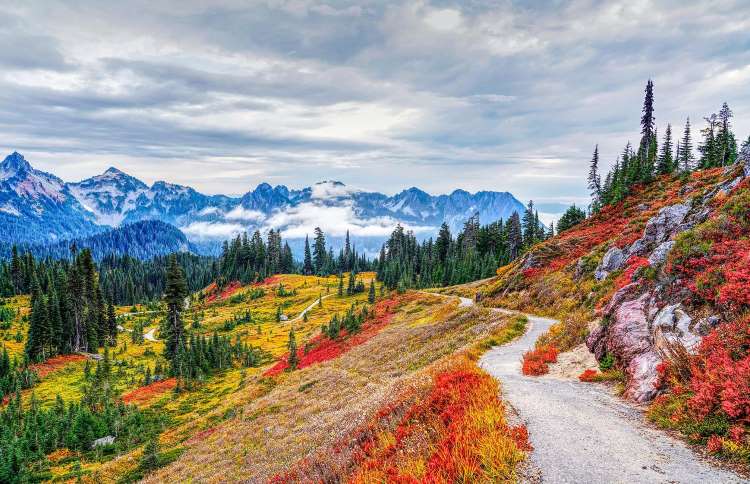
Courtesy Shutterstock
My latest travel dispatch: Just to be clear—there is never a bad time to visit a National Park! Except for during road closures, wild fires, rush-hour like traffic on holidays, or maybe even extreme temperatures in summer or winter.
That said, many National Parks are especially amazing in autumn, aka America’s favorite season, according to a recent BuzzFeed survey. Not only does fall welcome far fewer crowds and more manageable temperatures to our nation’s public parks, but it also brings with it the changing of the leaves, bringing out nature’s wild palette of colorful trees. Want to see the best of the best for fall? Look no further than these top picks.
Continue reading at Orbitz…
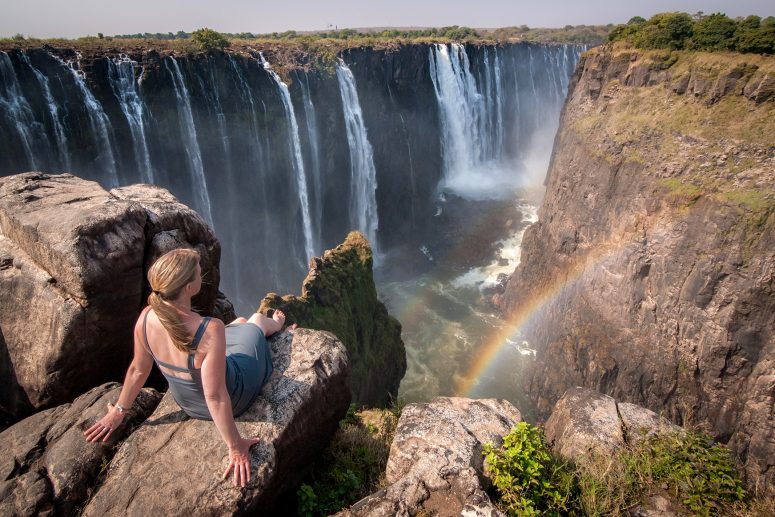
Shutterstock
While nowhere near the 180 countries U.S. passport holders could visit before the pandemic, there are currently 11 nations that are welcoming Americans with few, if any, entrance restrictions. Read my latest for Fodor’s…
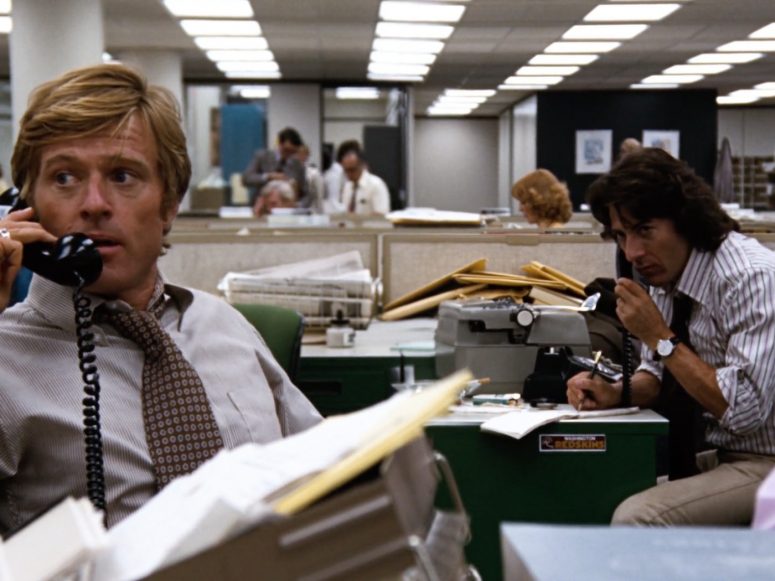
As a working, independent journalist for over 15 years now, I can attest that there is, in fact, a liberal bias in the media. In fact, 37% of journalists identify as liberal, while just 7% as conservative, according to the Washington Post. The rest, myself included, are independent.
Having written for dozens of moderate outlets such as CNN and even Fox News and MSNBC—the most extreme publications for American news bias—I also have a lot of insight into why that is. Here’s why. Continue reading…
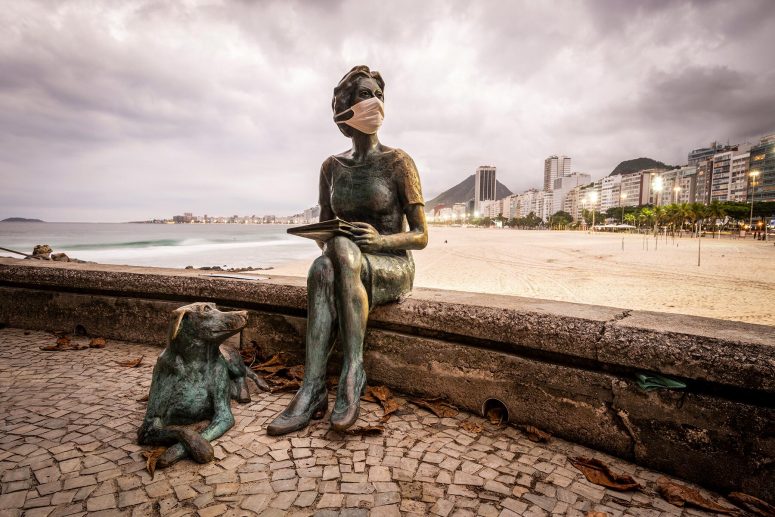
Courtesy Shutterstock
My latest for Fodor’s: “Shortly after coronavirus restrictions closed international borders last spring, I asked a dozen travel experts on when those borders might reopen. The immediate answer was discouraging: sometime in 2021 at the earliest. Many of those same experts accurately predicted, however, that domestic borders would reopen this summer and fall, which is exactly what happened.
“So how have travel forecasts changed over the last half-year, if at all? Are there any silver linings or is there any good news on the horizon for those hoping to travel as we did in the past? And what will it take to regain access to the places we lost this year?
“While there’s no easy answer to those questions, this is what many of those same experts say now: Everything is subject to change in this hesitant, inconsistent new world.” Continue reading…
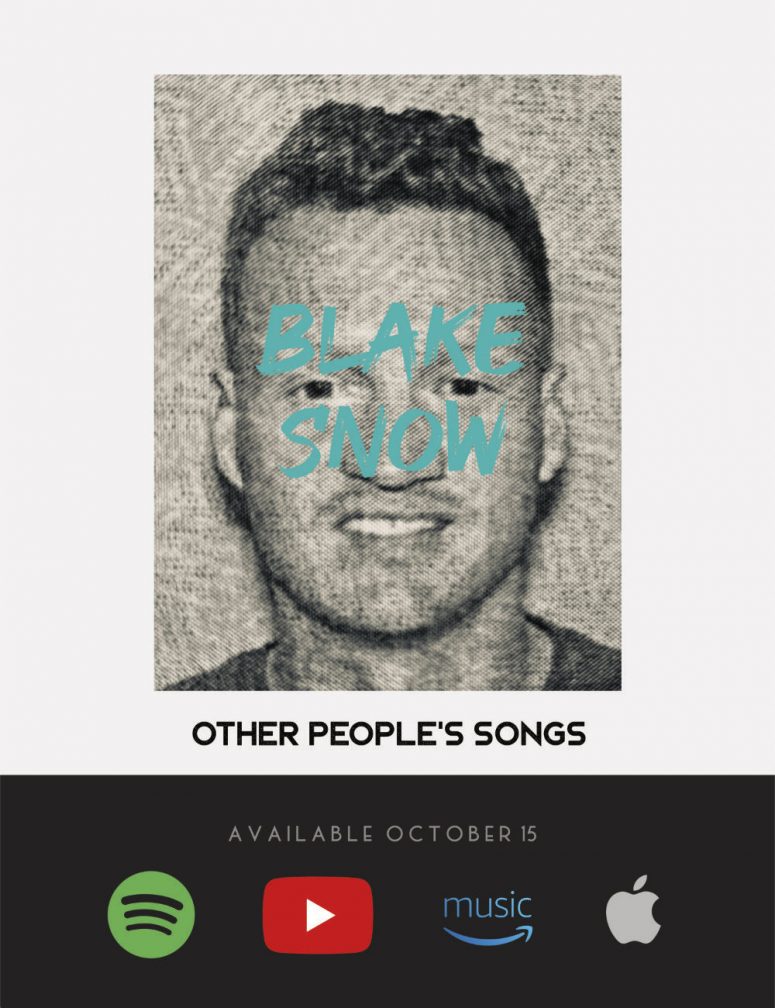
After releasing my debut album this year, I licensed and recorded a few of my favorite cover songs, which resulted in my first EP, out October 15. Hope you like it!

The Atlantic on the death of Eddie Van Halen: “How do we categorize his music? Soft hard rock. Light heavy metal… In the end, they were crossover artists. Beloved of girls, beloved of boys, with Eddie always, always taking it beyond. The far brought near. Excess without vulgarity. America, don’t forget how beautiful you are; you created the conditions for Eddie Van Halen.”
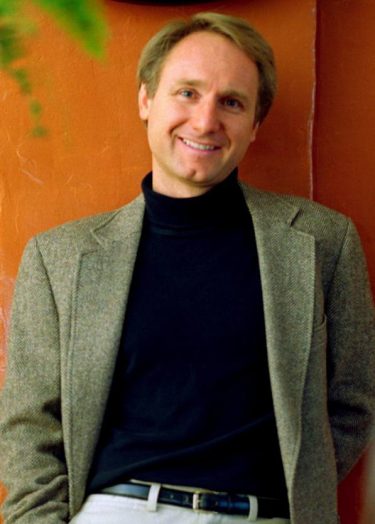 This is a great read by Jason Diamond on why critics hate Dan Brown but readers love him.
This is a great read by Jason Diamond on why critics hate Dan Brown but readers love him.
“William Shakespeare and Agatha Christie have sold in the billions. Danielle Steel and J.K. Rowling have both moved somewhere on the order of 500 million. Stan and Jan Berenstain sold about 250 million copies of their picture books about a family of eponymous, anthropomorphized bears. Stephen King beats out Brown, checking in around 350 million, and a handful of Japanese manga writers are up there as well. But at around 50th on the list, you’ll find him: Dan Brown, American author of just seven novels (Digital Fortress is the only pre-Langdon title), with 200 million sold copies to his name.”
I devoured Brown’s first four page-turners (Digital Fortress, Deception Point, Angels & Demons, Da Vinci Code) at the turn of the century and have fond memories of doing so. He’s more than deserving of his popularity.

Courtesy Outside
They were both modern-day martyrs, reports Outside magazine.
“Back when Austin and Geoghegan were cycling through Spain, after they were rescued by a stranger in the middle of a snowstorm, Austin wrote a post on his blog. “We live in a world where how you live is dictated largely by how you trust. If you do not trust others, if you believe human nature to be something dark and rotten, you close yourself off to a whole lot. If you do not open the shutters, all you get is darkness, no matter what’s outside. True, you may get darkness even if the shutters are open. Darkness or something worse: a rock hurled through your window, a tree branch kicked up by violent winds. But there’s no way to let the light in unless you open your shutters to the wider world.”

Shutterstock
My wife and I were talking to our children recently about how to spend money for maximum impact, fulfillment, and happiness. After researching the issue further, this is what I came up with: Continue reading…
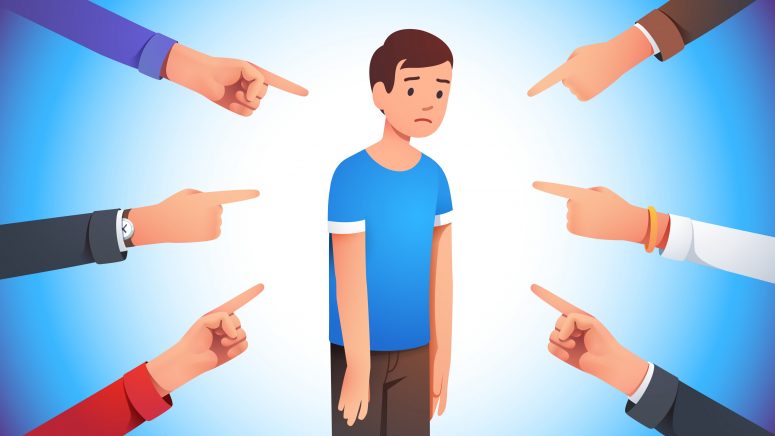
Shutterstock
My latest for Fodor’s about people who don’t think other people should travel in pandemic: “I think shamers are just scared, probably a little jealous, and don’t know how to handle their frustration or anger,” says travel blogger Kristin Addis. “The only way to handle it is to be OK with disagreeing. Shaming won’t fix anything. It won’t help communities that depend on tourism, and it won’t stop people from traveling either.” Continue reading…
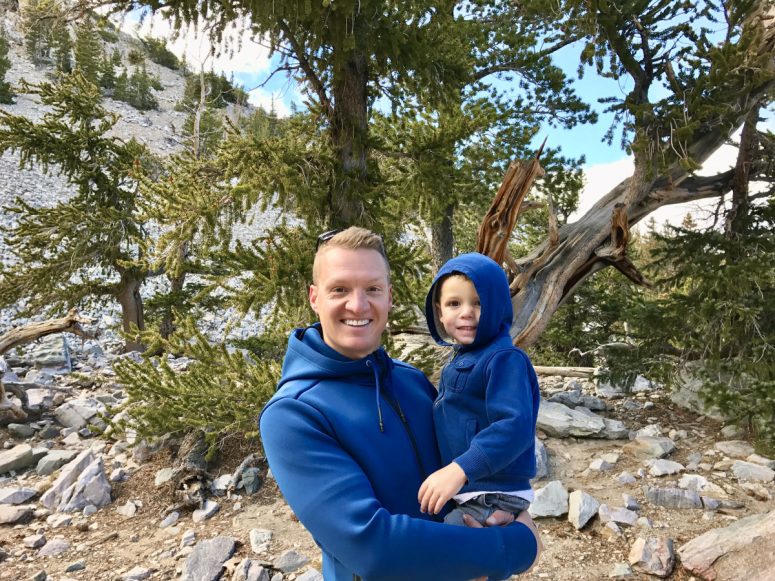
My latest for Lonely Planet:
“At nearly five millennia old, the bristlecone pines in Nevada’s only National Park are some of the oldest living organisms on earth. Although they don’t have the height or size of record-setting redwoods and sequoias standing in nearby California, ancient bristlecones can live over a thousand years longer, which makes hiking among them a surreal experience.”
Continue reading at Lonely Planet…
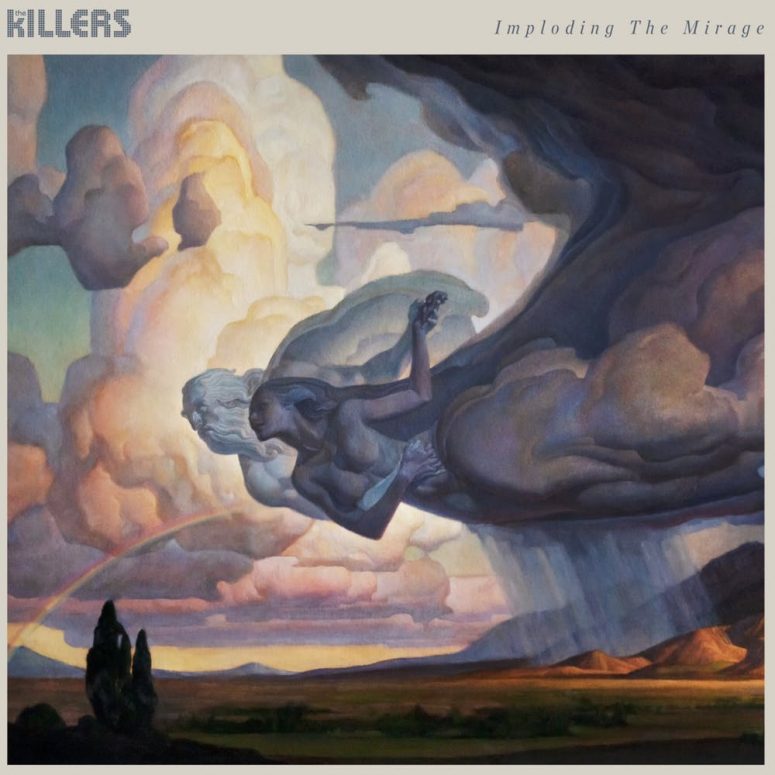
Like 2020 in general, music this year has been both good and bad. It hasn’t been the best since both releases and events are at all-time lows. But there’s been some really good stuff from the little that has been released. Pending any surprise release this winter, these are my favorite albums so far this year:
- The Killers, Imploding the Mirage. From front to back, this is a really well written, produced, and performed batch of 10 brilliant songs. Favorite song: Dying Breed
- Weeknd, After Hours (Clean). Because I listen to music with my kids and already have enough explicit content in my life, I really like the clean version of Weeknd’s latest album. I think it might be his best yet, even though it’s a slight departure from his previous EDM like production. Favorite song: Scared to Live
- Tame Impala, The Slow Rush. Is an okay Tame Impala album better than the best of the rest? If you’re a musical genius like Kevin Parker, the answer is yes. While not as masterful as his previous albums, especially currents, it’s still a good listen with a handful of really strong songs. Favorite song: On Track
- The Academic, Acting My Age. I cheated on this because it’s really an EP instead of full-length album, but the included six songs are deliciously fun, catchy, and unabashedly youthful. Favorite Song: Anything Could Happen
- Haim, Women in Music Pt. III. This is Haim’s best album to date, in my opinion. Delightful, poppy, foot-tappingly good production. Favorite song: Another Try
HONORABLE MENTION: Mr. Mustache by yours truly. I think it’s the best album by an unsigned artist this year, and not far off from sounding, acting, and producing something you’d expect from a professional team of musicians and producers. Now streaming on Spotify, iTunes, YouTube Music, Amazon and more. Favorite song: Shrug. I hope you enjoy it.
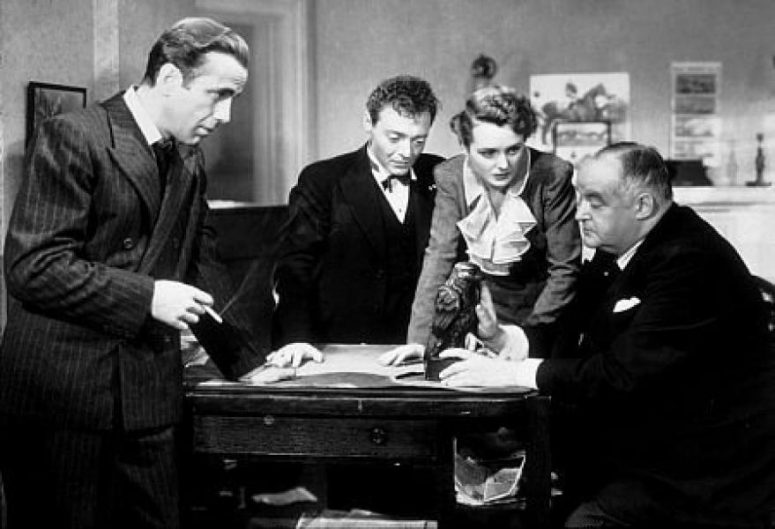
Courtesy Warner Bros.
Remarkable author Dashiell Hammett keeps this classic murder mystery going by only describing what characters see and do—never their thoughts or feelings. This makes for a tense and innovative approach to a who-done-it, and even started the hard-boiled, film noir trend of later detective novels and movies. Four out of five stars.

Courtesy Shutterstock
Although several of my international travel stories are still on hold, a handful of domestic ones recently published that I hope you enjoy. Thanks for reading and sharing any you like:

Judge me if you must, but I’ve been roadtripping with family for the last several months in quarantine to domestic locations that are increasingly open to tourists.
This is what I’ve learned from that changed, strange, but still worthwhile experience of traveling in a pandemic: Continue reading…
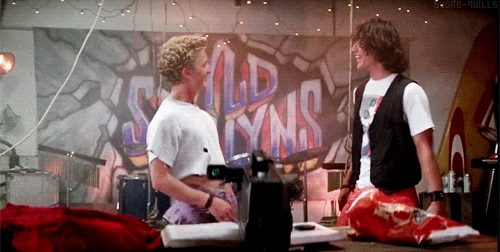
Two weeks after lockdown began this spring, I went to Guitar Center to pickup some gear for my new album. The place was packed. “It’s been Black Friday every day for the past two weeks,” one clerk told me.
Turns out, the sudden spike in homemade music has remained ever since. Gibson, Fender, and others have already broken record sales this year. One guitar maker sold in June and July what they expected to sell for the entire year!
According to the New York Times, “In a narrow sense, the surge made sense. Prospective players who had never quite found the time to take up an instrument suddenly had little excuse not to. As James Curleigh, the chief executive of Gibson Brands, put it: “In a world of digital acceleration, time is always your enemy. All of a sudden time became your friend.””
That was certainly the case for me. My work slowed, and I didn’t watch any Netflix or read any books during the first five months of quarantine. Instead, I spent all of my spare time making music, which resulted in my debut record and forming my first band since college.
It’s amazing what you can accomplish when time slows, whether by design or by pandemic.

Next to California and Alaska, Utah is one of the most disproportionately beautiful and geographically diverse states in America. It has five national parks, 10 national monuments, and dozens of other national recitation areas. Even some of its state parks that would likely be a national park anywhere else (I’m looking at you Snow Canyon). It’s a state I call home, and where I want my ashes spread when I die. About the only thing Utah doesn’t have are beaches, but the red rock just might make up for that absence. Either way, here are five impressive photos of some of the state’s most iconic scenery: Continue reading…
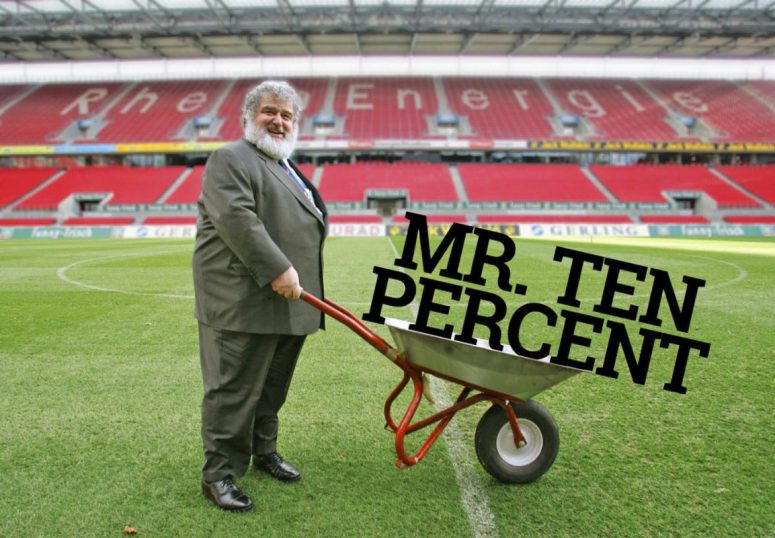
In 2015, the U.S. Department of Justice indicted dozens of global soccer officials on charges of rampant bribery, money laundering, and widespread corruption. As the “FIFA fallout” continues, here’s what organizations can do to keep themselves honest, in good standing with the law, and free from corporate fraud.
The month before the 2014 World Cup was set to kick-off in Brazil, a Los Angeles journalist by the name of Ken Bensinger received a juicy tip from a colleague. According to the tipster, a top U.S. soccer official by the name of Chuck Blazer had defrauded the sport of more than $20 million dollars. Not only did the official deal in the wholesale bribery, but he apportioned 10% of almost every single dollar that came in—even hot dog sales, even on charity games.
Bensinger did some digging, confirmed the rumors, and published his wild, investigative story for Buzzfeed News. The story went viral, and quickly uncovered a rabbit hole of obscene corruption that reached nearly every region of the global sport, from the bottom to the top. Although international FIFA officials were always suspected of rampant fraud, Bensinger’s story was the first to reveal that the culture of crime had undoubtedly reached U.S. shores.
A year later, with the help of a cooperating Blazer, the U.S. Department of Justice indicted the first of dozens of FIFA officials on organized crime charges of racketeering, bribery, money laundering, and fraud. That seismic event lead to Bensinger’s groundbreaking and riveting book, Red Card.
I recently spoke to Bensiger about the fallout and what companies can learn from the largest sporting scandal in world history. And although few, if any, legitimate businesses operate as organized crime syndicates like FIFA often did, Bensinger was quick to diffuse the proximity.
“It was organized crime, but the corruption case also involved several legitimate businesses,” Bensinger says. “Sports marketers, big broadcasters, and sponsors such as Coca-Cola, Sony, and McDonald’s, the latter two which even canceled their contracts with FIFA as a result.” Continue reading…
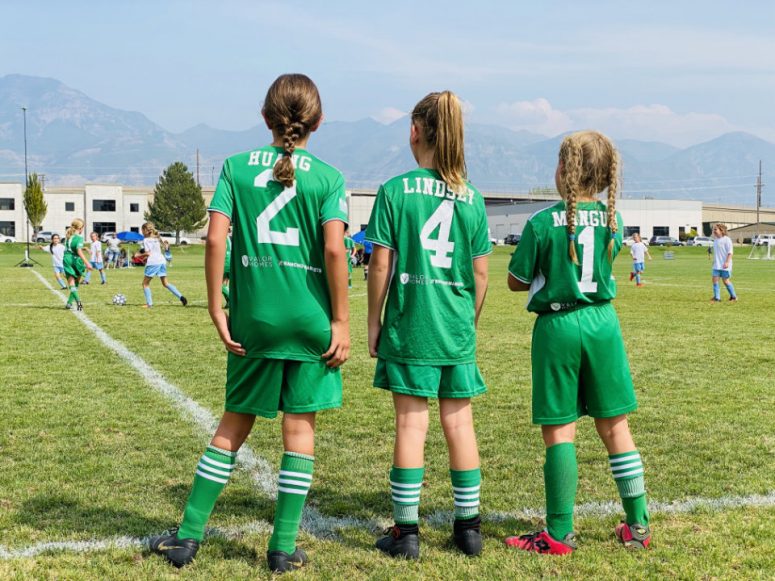
Business Insider recently compiled the latest research on how parenting styles affect our grown children. For example, according to the American Medical Association, Harvard, the University of Michigan, and others:
- Kids who do chores grow into more independent and responsible adults.
- Kids who are taught social skills end up graduating from college and earning more money.
- Kids who were told white lies by their parents have a lot more trust issues as adults.
- Kids develop low self esteem after watching their parents speak negatively about their own bodies.
- Kids with high expectations and nurturing parents get better grades in school.
- Kids who are taught how to verbalize feelings get fewer divorces as adults.
- Kids who are sheltered by their parents suffer greater anxiety as adults.
Parenting isn’t easy. But reading the above makes me want to double my efforts. The upside is far too great than giving in to a daily tantrum.

When a friend recently asked Blake Snow if he was quitting his day job to become a full-time musician, he answered “No.” But that doesn’t mean his debut album, Mr. Mustache, is a joke or something not worth supporting (or even touring). “It’s a synth-laden rock record that I take very seriously,” Snow says.
Written, recorded, and produced entirely in quarantine, Mr. Mustache is the public culmination of more than 25 years of homegrown songwriting, recording, and performing. “I wouldn’t say this record saved my life, but it definitely saved my sanity during lockdown,” Snow says. “I hope you enjoy listening to it as much as I had making it.”
Standout tracks include the lead single, Turn A Corner, the moody Control What You Can, the playful Mr. Mustache, and Snow’s personal favorite, Shrug, which also happens to be his go-to coping mechanism for the current madness.
Listen to the full-length album now on:

Courtesy Shutterstock
Do you know what happens when world-class athletes stop taking time-outs? Their body slows down and they start making bad decisions. Anyone who’s every played competitive sports or even performance art already understands this truth.
And yet when it comes to office work, many of us overlook the importance of regular breaks. We mistakenly assume that just because we’re not exerting our bodies, we don’t need rest. But breaking isn’t just for people who tax their bodies for work, it’s for anyone who thinks and makes lots of decisions—you very much included.
To that end, here are 5 ways regular breaks can help you work smarter, faster, and even longer: Continue reading…

I finished writing my second book the day America shutdown on Friday the 13th. In the months since, it was edited, approved, and most recently cover art-ed.
Although it was suppose to publish in August, COVID slowed things down a little. But I’m still confident it will release in the coming weeks, depending on schedules.
Either way, I’m incredibly proud of the result and can’t wait to share it with the world soon. Thanks for considering it.
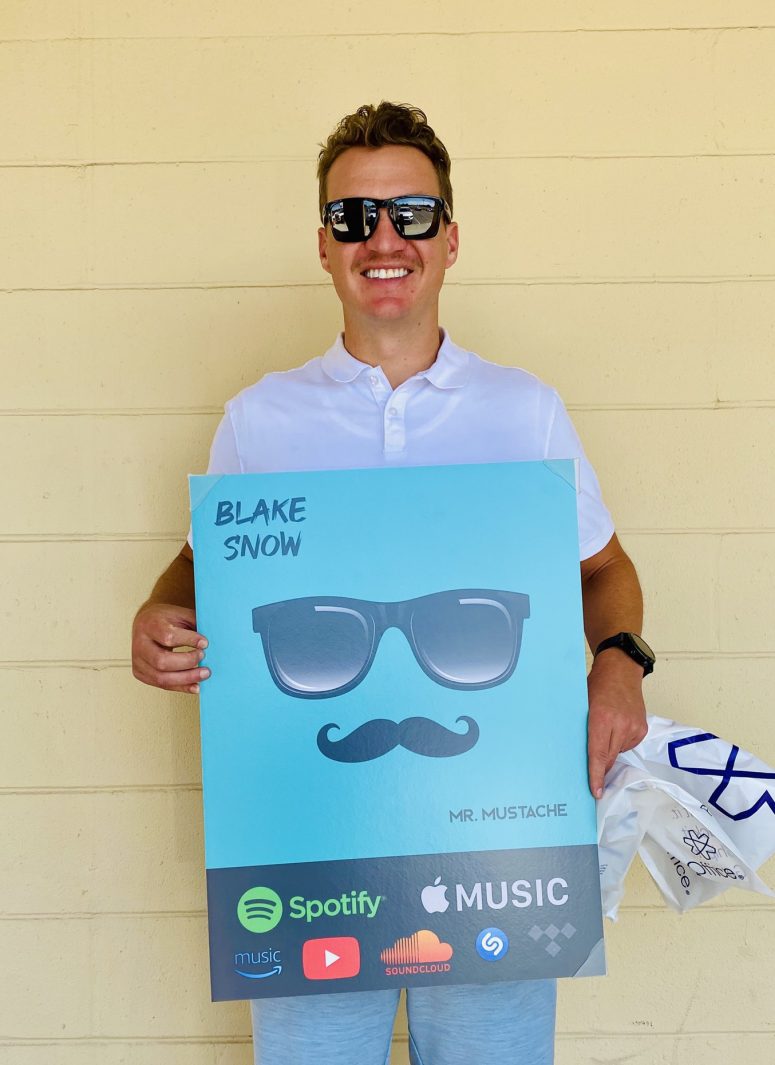
Photo by my son, Max Snow
My first album, Mr. Mustache, was released on all major music stores today. I’m proud and excited to share the record with the world. Here are 10 things you should know:
- It’s streaming on Spotify, Apple Music, Amazon Music, YouTube Music and more. Additionally you can purchase the album for download from iTunes or Amazon. I get like .00000001 of a penny every time you do.
- With exception to one song (“Show Me,” co-written by friend Chris Morell), the entire album was written, recorded, produced, mixed, and mastered by me in my home office. I even did the cover art. You can read the story behind all 12 songs here.
- I wrote and recorded 18 songs for the album, but shelved five and will re-record the sixth for a later release. The album was recorded in Garage Band on my Mac mini and distributed by Amuse.
- The record is 41 minutes long, which is the age I turned while finishing the record. I also had a near out-of-body experience while recording this song.
- It was produced entirely in quarantine. Although unwanted, “The Great Shutdown” proved to be the most musically inspiring event of my life so far.
- It took four months to complete, from pre-production songwriting and arranging, to recording and performing, and ultimately mixing and mastering.
- Not since college have I played this much music. Never in my life have I written this much music. I can’t tell you how wonderful it feels to make noise while the world sorts itself out.
- There are six synth pop songs on the 12 track record, plus two rock songs, two pop punk songs, and two ballads.
- My friend recently asked if I was quitting writing to become a full-time musician. I replied, “No,” but I plan to release several more albums in my spare time now as an unsigned artist.
- You can ask Alexa, OK Google, or Siri to “Play the latest Album by Blake Snow” and they will. Neat!
After my family played the record for this first time this morning, my wife asked in earnest, “Will you cut your mustache now?” I said, “Yes.” But only after my album release party tomorrow!
Thanks for listening and sharing with anyone who might like it.
PS—If you would review the album on your favorite music service, it would really help it reach more people. Thank you.
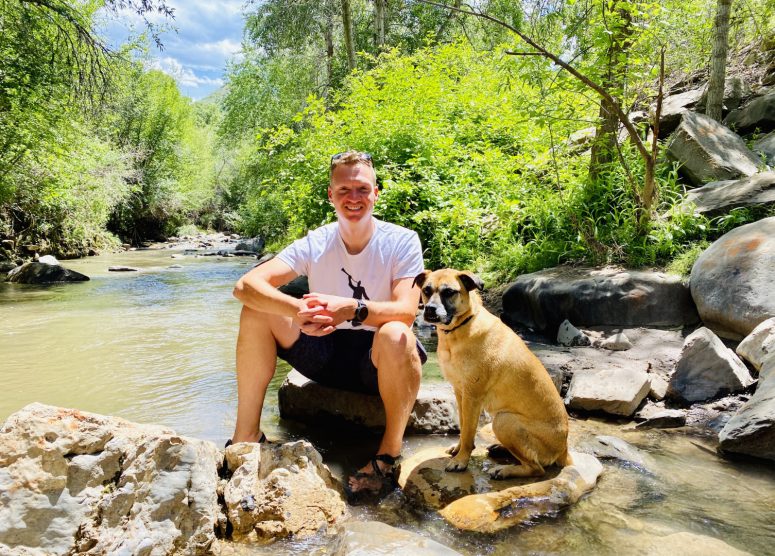
Credit: Lindsey Snow
I was recently interviewed by Kim Forrester, a wellbeing podcaster from New Zealand, about my book Log Off: How to Stay Connected after Disconnecting.
I hope you enjoy her delightful accent and questions as much as my answers related to sustainable technology use, how quarantine has changed the rules (or hasn’t), and what you can do right now to reclaim your nights and weekends.
Thanks for listening.
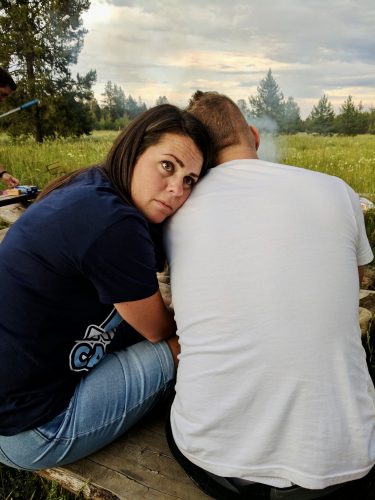 I was a mess the first two weeks of quarantine. My wife of 17 years said she had never seen me so stressed.
I was a mess the first two weeks of quarantine. My wife of 17 years said she had never seen me so stressed.
What did I do to cope?
I started writing music at a frantic pace and recorded 18 original songs in the first three months of shutdown. Twelve of those songs made it on my debut album that’s available for streaming and download on August 20.
One of the songs that really help me move from stress to at least some kind of clarity was called “Control What You Can.” With exception to the bridge, it ‘s only two chords and it has an uneasy feeling, the same feeling most of us felt when the world changed.
But in spite of the uneasy sound, I wrote the encouraging lyrics for myself, pleading to “control what I could” when there was so much I couldn’t control. It was a wonderful realization that help me turn a corner; from stress into action.
When I went to record the song, it was late at night. With my floor lamp and headphones on, I spent several hours on the production and immediately knew I had captured a special sound, arguably the most professional track on the the entire album. By the end, I recorded a simple but righteous guitar solo and sung my heart out during an extended outro.
This is that song. It’s pretty moody. And although the music doesn’t sound very uplifting, the lyrics completely are, which is a juxtaposition that I really like and hope you do to.

Courtesy Shutterstock
I’ve never been scared of COVID.
I’m still young and in good health, which played a big part in me not feeling vulnerable, since the virus tends to kill older and chronically ill people. But even those groups are both enjoying well over a 99% recovery rate now, according to the latest numbers. Whereas before coronavirus was hospitalizing and killing around 5% of those it infected, those numbers have dropped below 1%. Neither 5% or 1% scares me.
Truth be told, I’ve always sided with Sweden’s controversial, no masks, and little social distancing approach, which allowed schools, businesses, and small gatherings to remain open. That approach is increasingly looking like a more than suitable one that benefited Sweden’s economy without the massive death that the rest of the world predicted they would have.
Furthermore, in a recent report entitled The Coronavirus Is Never Going Away, The Atlantic convincingly argues that COVID will likely become a common cold or seasonal flu strain, like other coronavirus have before it. “I think this virus is with us to the future,” said one vaccine researcher at Johns Hopkins. “But so is influenza with us, and for the most part, flu doesn’t shut down our societies. We manage it.”
If that ends up being the case, I’m not sure how soon we can all remove the masks and start “social proximiting.” But I sure hope it’s sooner than later. As one commenter recently said, “Sitting at home shaking with fear while pointing the critical finger is no life.”

Courtesy Nirmal Purja/Twitter
This is an excellent long-read on the overpopulation of bagging Mount Everest (aka “the world’s highest junkyard”).
From The Hustle: “On Everest, even these deaths come at a premium. Retrieving a body is an extremely challenging endeavor that requires as many as 10 Sherpas and can cost up to $70k. Most corpses are left on the mountain; some, like “Green Boots,” become immortalized as trail markers.”
No, thank you.

SHOW CANCELLED: Due to drummer issues 😔, our band won’t be playing this weekend. I hope to announce a rescheduled date later this fall. Thanks for your support. 💪
Music has been good to me in quarantine.
In addition to recording an album, I started a cover band with three local musicians.
We call ourselves “Super Cover” and play energetic, dance rock songs that’ll make you want to sing. As you can see, Ashton Bennet rips on guitar. Caleb Browning destroys the bass and backing vocals. Jayce Ward keeps perfect time on drums. And I sing while playing a mean tambourine sometimes.
Our first all-ages show is Saturday, September 12 on the outdoor stage at the Provo Riverwoods Mall. We plan on playing from 7:30–9:00 pm. Our setlist includes bangers from The Black Keys, Fitz & The Tantrums, Muse, MGMT, Phoenix, Tame Impala, Grouplove, and Awolnation among others, not to mention a couple of ’80s surprises.
Hope to see you there. 🤘
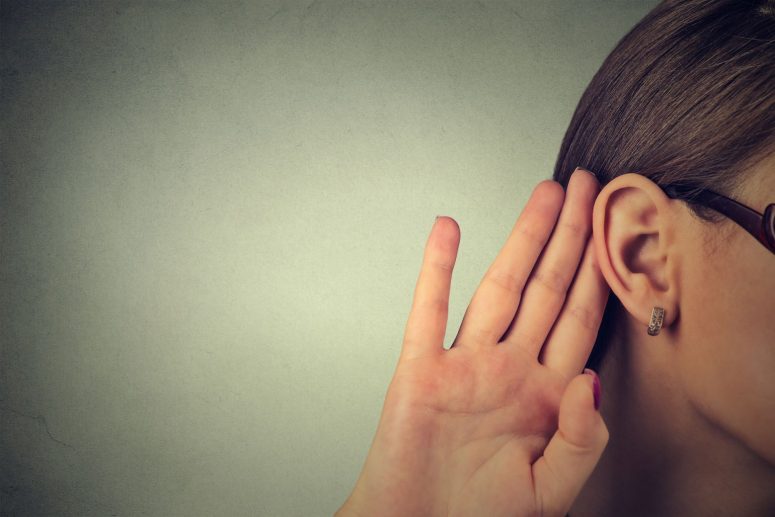
Courtesy Shutterstock
More than half of Americans think crime is getting worse, according to FiveThirtyEight. Truth is: this majority is wrong. Both property and violent crimes have decreased by nearly 75% over the last three decades.
On top of that, everything else is down too, according to Factfulness. Death, poverty, illness, disease—everything. And we can confidently say that without fear of things getting worse if we admit that. Humans get better. Period. We progress and we still will.
Problem is, fear has a nasty way of impeding our progress. For example, “The trouble is that fear about crime isn’t rational, and it’s hard to convince people to think differently about a problem that they don’t experience on a day-to-day basis anyway,” reports FiveThirtyEight. “’You can tell Americans that the crime rate is lower today than it was in the 1990s, but it won’t feel real to them,’ said Kevin Wozniak, a sociologist at the University of Massachusetts Boston. ‘That is, unless politicians stop drumming up the crime rate and people stop hearing about murder every night on the local news.'”
This is especially compounded in middle class and rich countries like America. These types of societies fear more irrational things than others, because they have the luxury of worrying about a lot more stupid things than basic necessities and average wants and needs.
So they worry. They overstate their fears. Then they become victims of that fear.
Coincidentally, we see a lot of similar fears taking hold today about public health. Both are valid concerns, mind you. But I believe both are equally overstated and misunderstood.
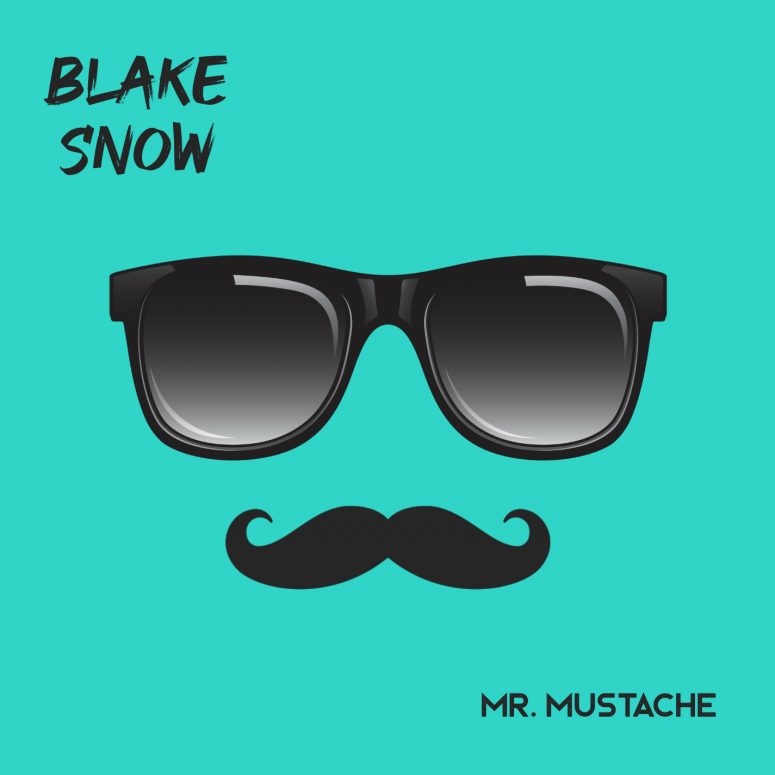
I’m incredibly proud of the album and what it did for me during quarantine. I hope you mark your calendars and enjoy as many songs as possible. Here is the track listing:
- Under Quarantine
- Turn A Corner
- Shrug
- Show Me
- Control What You Can
- Mr. Mustache
- No Longer The Same
- Victim
- Bad Friends
- Time Isn’t Money
- Going Up
- Minuteman
Thanks for giving it a chance. I know it seems weird to have a writer release an album, but I hope you take it as serious as I have. I think you’ll find there are some redeeming, heartfelt songs inside.
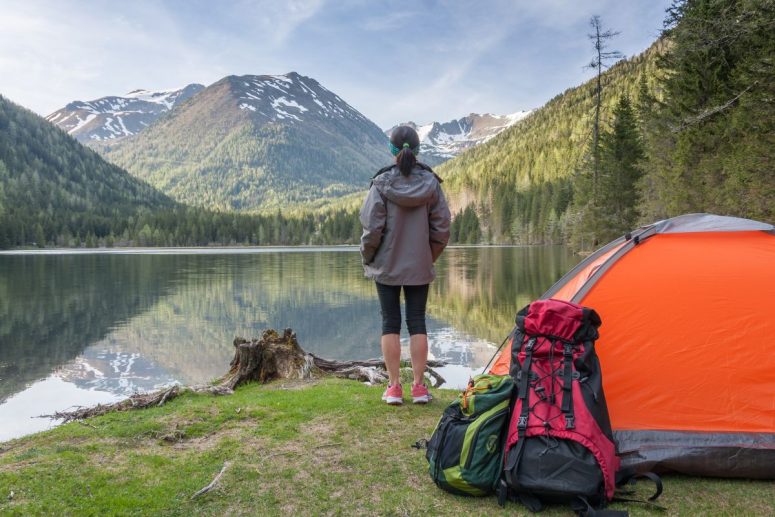
Courtesy Shutterstock
My latest for Orbitz: “In case you didn’t know, there’s been a boom in camping this summer. In wake of COVID quarantines, people are gravitating toward trips and activities that come with built-in social distancing. Camping, of course, is a great option. But packing for either a short- or long-term camping trip involves a lot more than just a tent and smores. Looking to spend a night in the great outdoors? Consider these 17 items before you go.” Continue reading…
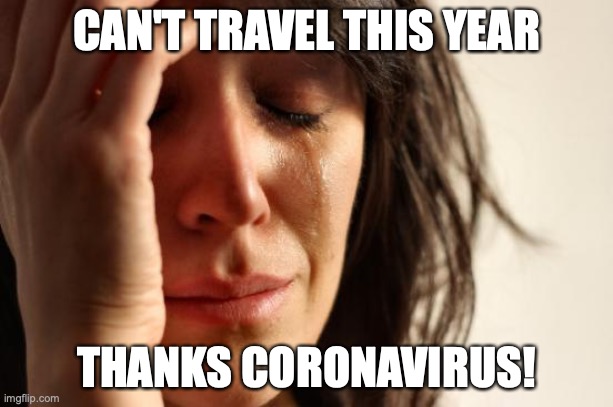
My latest for Lonely Planet: “The past few months have been a challenge for everyone. But for travelers, wanderlusters, and global adventurers, the closed borders and shrinking world have been especially depressing. Here are 10 ways to cope for the foreseeable future, according to experts.”
SEE ALSO: My latest for Orbitz—What your summer vacation will look like this year

Courtesy Boston Globe
This is a great report by Vice on quitting conspiracy theories. From the article:
“These days, Dave lives differently. ‘Mentally, I’m in a much better place. There isn’t a boogeyman around every corner. The mistrust and paranoia is gone. Some of my former compatriots would compare me to Winston Smith at the end of 1984, but that couldn’t be further from the truth. I am able to trust that 2+2=4. Earthquakes happen, people die, stuff happens. There isn’t always a nefarious plot behind it.'”

Like many of you reading this, the last four months have been the most eventful, strangest, and unsettling spring of my life. But it’s also been one of the best (i.e. bonding with family, completing my second book, starting a band).
In that time, I also wrote, produced, sung, and recorded 16 original songs. I just finished the last one this week and just need to make some finishing touches and final mastering before independently releasing the album to Spotify, Apple, and Amazon Music in the coming weeks.
I’m incredibly proud of the result and grateful for it helping me to cope with this fearful new, but still incredibly beautiful world. I can’t wait for you to hear the whole thing.
Until then, here is the “lead single” entitled Turn A Corner.
 If you enjoy the effort of doing something more than the result, you will be good at whatever you decide to do.
If you enjoy the effort of doing something more than the result, you will be good at whatever you decide to do.
In my case, when I spend days, weeks, months, or even years writing something, I love that process more than the minutes, hours, or days it takes me to read the result.
I’m not exaggerating to prove a point. It’s true. I love the act of writing more than the result (although the result is really nice icing on the cake that sustains me to the next result). Asking a lot of people if I can write for them is worth the rejection.
That’s how you know you can “win” at something—because you enjoy the mastery time, effort, and rejection required more than the average person.
In my case, I would write for free, I love it so much. Which is precisely how I started writing, for free, on this blog (and still do). Because I love writing so much, I’ve gotten good enough at it that people will pay me to write for them.
Which is a fulfillment of Joker’s absolutism: “If you’re good at something, never do it for free.”
I’ll disagree with him on the “never” aspect, since you sometimes have to work for free to keep learning and growing. But the point is hard work is valued.
So find work you love doing and the value will take care of itself.
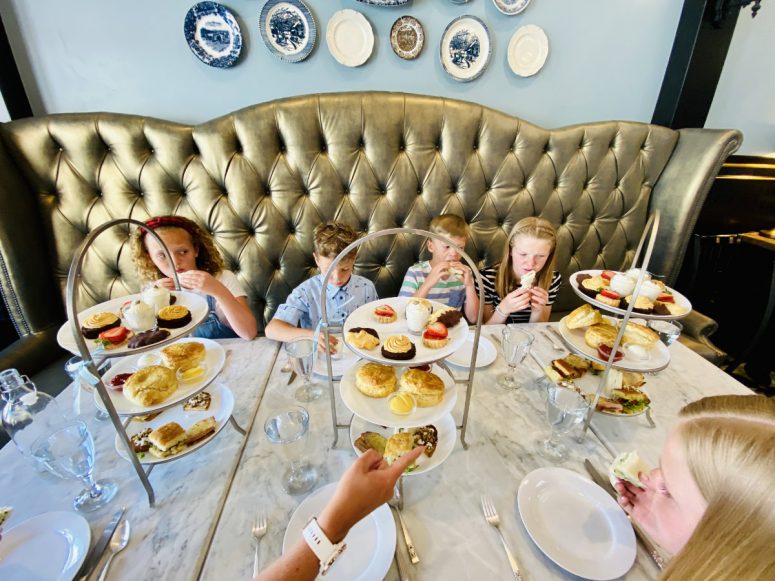
Courtesy Blake Snow
You don’t have to cross borders or cook from home to taste some of the world’s greatest foods. Looking for fresh ideas to spice up your quarantine cuisine? Try one of these, although your mileage may vary depending on current state restrictions: Continue reading…
 With little else to do in quarantine, I’ve been making a lot of music over the last four months. I’ve recorded an album’s worth of original material, which I hope to release this summer, and started rehearsing with a live cover band—a rock quartet comprised of me singing, Ashton Bennett melting faces on guitar, Caleb Browning rocking a ridiculous amount of bass and backing vocals, and Jayce Ward not missing a beat on drums. (video evidence here)
With little else to do in quarantine, I’ve been making a lot of music over the last four months. I’ve recorded an album’s worth of original material, which I hope to release this summer, and started rehearsing with a live cover band—a rock quartet comprised of me singing, Ashton Bennett melting faces on guitar, Caleb Browning rocking a ridiculous amount of bass and backing vocals, and Jayce Ward not missing a beat on drums. (video evidence here)
Though both experiences, I’ve learned two important lessons:
- I love making music. I learned guitar and started singing in middle school and played in several bands through college. But with notable exception to listening to lots of new music, I largely quit making it after marrying, having children, and taking up writing. Quarantine changed all of that for the better. It’s a wonderful feeling to make harmonious noise while the world slowly sorts itself out.
- Tambourines are in over 50% of popular music. While recording, studying, and performing more live music than ever before, I’ve been immediately struck by the amount of tambourines used in recorded music (at least the kind of pop and rock that I mostly listen to), and how much better they make live music sound. I realize tambourines are the ugly stepchild of music, but let me explain why they’re used more than even synthesizers when it comes to making popular music.
Continue reading…
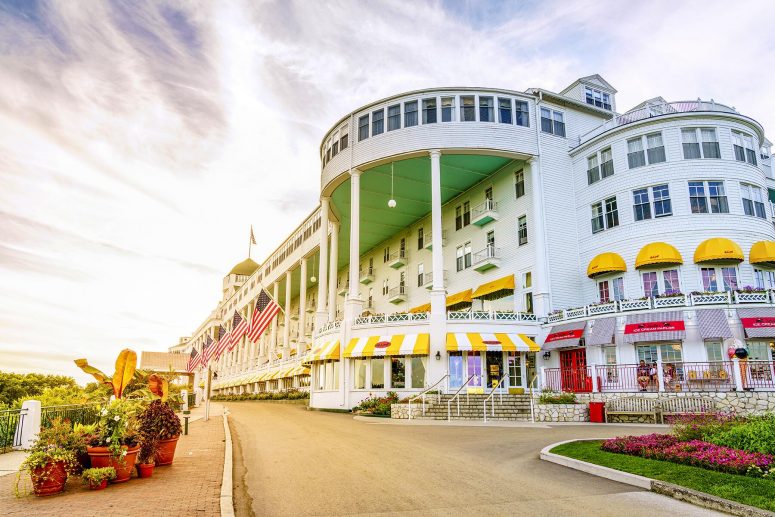
Courtesy Shutterstock
My latest for Fodor’s: Ready or not, the world is starting to reopen to both shoppers and travelers, after more than three months of quarantine. Although international borders are still largely closed, most state borders are open to domestic visitors. Granted, it will take a lot more time and research to pull off a successful interstate trip these days. But for many, the added hassle, increased risks, and fewer options are still worth it. They aren’t perfect. But until further notice, this is as good as it gets. Continue reading…
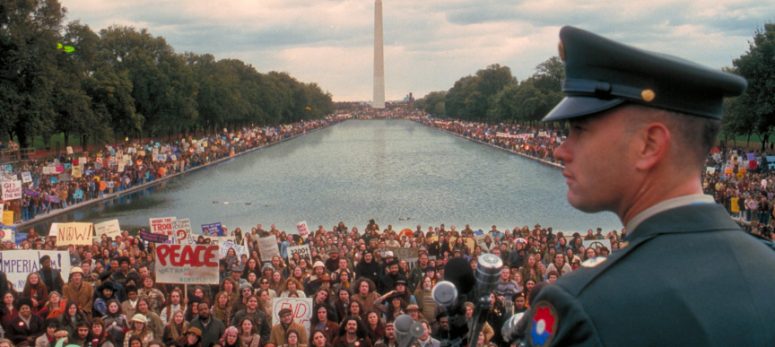
Courtesy Paramount Pictures
Divisive presidents, partisan gridlock, identity politics, and fake news are not new, argue the authors of Democracy Despite Itself. In fact, these frustrating problems have been around since America declared independence nearly 250 years ago.
“The history of democracy is a story of ignorant voters making questionable decisions, and unqualified elected officials implementing abysmal policies,” say researchers Danny Oppenheimer and Mike Edwards. “And yet, by every measure of well-being that has ever been studied, citizens of democracies are doing better than any other form of government. We live longer. We have more wealth. We are better educated. We are safer… Yes, inequality, poverty, and crime still exist, but that is true of every society. No society is perfect, but democracies are less imperfect.”
Not only that, but democracies do a better job improving the existing inefficiencies better than other governments, without widespread bloodshed, the authors argue. Like capitalism, democracy has a proven track record of being the most progressive system available to enrich societies.
In other words, don’t throw the baby out with the bathwater!
 I was raised on Beach Boys, Beatles, ABBA, Led Zeppelin, and ’80s soft rock hits in that order. My father largely exposed me to the first three. My older sister Cami to Zeppelin. And my mother to the latter.
I was raised on Beach Boys, Beatles, ABBA, Led Zeppelin, and ’80s soft rock hits in that order. My father largely exposed me to the first three. My older sister Cami to Zeppelin. And my mother to the latter.
But it wasn’t until the spring of 1990, at the ripe age of 10, that I thought to myself, “I love this song, and I need to spend money on it to start my own music collection.”
The song was Technotronic’s “Pump Up The Jam,” which is a tasty mix of both hip-hop and house music. So on a visit to an Oklahoman Walmart with my mother, I forked over what I remember being around $8 for the album on cassette. I listened to that thing constantly while pretending to be Michael Jordan with my over the door basketball hoop.
Later that year, I was mesmerized by Metallica’s “Enter Sandman,” so I bought and devoured that album on cassette too. I don’t remember the third album I bought, but I remember borrowing and adoring my sister Summer’s Nirvana Nevermind CD on the regular.
From there my musical tastes traveled far and wide. With exception to select Nine In Nails songs, there are only two genres that I actively dislike: industrial and death metal. Everything else is fair game.
Readers: What was the first piece of music you bought for yourself?

An aspiring freelance writer recently emailed asking me how to increase her chances of placing articles with editors. She seemed eager to learn and willing to work, so this is what I told her:
- Keep your pitches (and requests in general) to a single paragraph. If you can’t sell a story or request for help in just a few sentences, you won’t be able to sell it in several paragraphs, which is annoying and disrespectful to an editor’s time. If they want more information, they’ll ask.
- Ask 100 editors if they’ll run your story. After most or all ignore you, ask them 3-4 times more. Often times it takes that much to get a favorable response, even after you get some good bylines under your belt. Usually I start by emailing my top 25 editors, and if no one bites, I’ll increase that number. But I didn’t place my first story with Wired Magazine until the 100th editor!
Lastly, I’d argue that most beginning writers struggle with wordiness. They like to hear themselves talk, and it shows in their bloated writing, which neither editors nor readers like. It sounds obvious, but to succeed as a freelance writer, you must be able to write in a way that appeals to a lot of other readers.
Think short sentences. Crystal clarity. Spicy words. Well-researched and genuine arguments. And in an increasingly distracted world, compelling writing requires more brevity than ever before.
Placing articles ain’t easy, but it’s totally worth it.

Courtesy Shutterstock
I was raised on the belief that few things are more American than protesting.
In high school, I successfully protested a high school teacher for saying that I had to stand for the Pledge of Allegiance. Although I was sitting out of laziness, as soon as she told me I “must stand,” I remained seated in legal defiance. The next day after my friend and I failed to stand, she sent us to the principal. After meeting with school officials, it was determined that students didn’t have to stand for the Pledge. So on the third day, our teacher humbly stood in front of our class and said she was wrong and apologized. From then on, my friend and I stood for the Pledge every single day with the utmost respect.
I felt a similar feeling of pride watching “reopen the economy” protesters this spring. I was saddened to them being shamed for protesting nationwide quarantines. There’s never a bad time to protest! If anything, lockdowns are the ideal time to protest.
Recently, I’ve felt equal amounts of pride watching “black lives matter” and “celebrate police” protests. Although seemingly on opposite ends of the political spectrum, I believe both are justified and honorable. As with all complicated issues in life, the truth is somewhere in the middle. Cops are sometimes brutally and deathly racists, and we should try to fix that. But mostly they are good, and they should still be celebrated. Continue reading…
 Earlier this month, I received one of the nicest reader emails ever. With his permission (and edited for clarity), I share the letter in the hopes that it might inspire someone else:
Earlier this month, I received one of the nicest reader emails ever. With his permission (and edited for clarity), I share the letter in the hopes that it might inspire someone else:
Hi Blake. I want to let you know how great an impact your book Log Off had on my life.
You see, I was overwhelmed, unable to focus, distracted, and constantly tired. I kind of knew the source of it all, but was unable to express it, even to myself. Now, thanks to you, I have changed my relationship with technology, and my life is increasingly better.
A few things about me: my name is Mauricio Munoz. I am 48 year-old dentist from Bogota, Colombia. I love technology. I really like the internet and all the possibilities and access to information and communication that it entails.
I love devices like smartphones, but I realized, after reading your book, that I was addicted to those things. I was completely dominated by the dopamine fix that those devices and connectivity gave me. Now I feel much better. Thanks a lot, man.
Here are some major changes I’ve made:
- Now I use a dumb phone. My office has a smartphone managed by my staff, but it’s only used for business.
- I do own a smartphone, but I use it with no sim card. Like a tablet mostly for online banking, communication with family overseas, and for its very good camera. But I don’t carry it with me all the time, and sometimes I don’t use it at all for weeks.
- I still use a first-generation iPad for reading books.
- I have other laptops and desktops around, but I only use those on a need-to basis now.
- I enjoy my free time with my family and myself more. I like my work more, too, and feel more present in every moment.
Thanks, Blake. Great work—your book changed my life.
Mauricio, muchas gracias for reading my book and saying so. I’m thrilled it had a positive impact and am humbled by your kind words. I hope to shake your hand in Bogota someday.

Courtesy Blake Snow
Here’s my latest travel dispatch for Lonely Planet
Depending on where you live, amusement parks can be one of the best day trip experiences around. But like everything else, coronavirus indefinitely changed them.
As one of the US states with the lowest rates of coronavirus infections, Utah was also one of the first to lift restrictions and open its doors. In late May, one of those doors was the highly-rated Lagoon Park, which USA Today recently named one of the best “hidden-gem” theme parks in the country.
Local reaction to the park’s reopening was tepid at best. Is a tightly packed, and line-filled attraction really such a good idea, especially after over two months of quarantine? At first my wife and I said no. But after reading favorable reports of “no crowds,” “attendance limited to 15% capacity,” and “we had a lot of fun,” – not to mention almost no getaway options at our disposal (even Utah’s national parks still hadn’t yet opened) – we booked our family for the following Saturday. Continue reading…
 My wife started and runs a successful soccer club of 14 youth teams. Now in their second year, they’ve done really well because they charge little more than recreational fees for a league that’s a lot more competitive, without the expensive time and money commitments of “club soccer.”
My wife started and runs a successful soccer club of 14 youth teams. Now in their second year, they’ve done really well because they charge little more than recreational fees for a league that’s a lot more competitive, without the expensive time and money commitments of “club soccer.”
After opening registration this summer, she had more than enough players sign up. That’s what you get when you run a well-organized event with lots of value. Last week, however, she received a long-winded email from a demanding mother that listed out several line items she required before registration. She went on and on, my wife said.
In response, my wife kindly but briefly wrote, “Thanks for asking. We’re full this year. Please consider us again.”
My wife instinctively understood that this woman might cause more headaches than her $200 registration fee was worth.
The same is true of any business. If someone seems like they’d be a difficult customer, they probably will be and should best be avoided through a polite “No thanks,” or “I’m busy.”
In rare cases where you provide a custom quote, you might try to “price them out,” that is only work with them for an amount that you estimate would be worth the added headaches.
Both approaches have served me well and really help the free market shine, for sellers as much as buyers.

During the Great Depression, a man named Charley Pride was born in Mississippi as one of 11 children to his sharecropping parents. The year he was born, The Dust Bowl would ravage 300 million American acres, forcing hundreds of thousands of migrants to California in search of income.
As a boy, Pride was introduced to country music by his father and later learned guitar. Though he loved music, he dreamed of playing professional baseball, which he successfully did for much of his 20s in both Negro and minor leagues. After being cut by the Cincinnati Reds farm team in Missoula, Montana, Pride worked in construction and a metal factory for many years. He also played semi-pro ball on the side and made double his salary by singing to the crowd before games. Years later he cut a demo at the famous Sun Studio in Memphis, the same recording studio that put Elvis on the map. Sometime later, country superstar Chet Atkins heard the demo and signed him to a contract. With over 30 number one hits, he would become the second most successful RCA musician in history (after Elvis).
But fame quickly forced him to confront his outsider status. This is how he confronted it, according to Wikipedia. “In the late summer of 1966, on the strength of his early releases, Pride was booked for his first large show, in Detroit’s Olympia Stadium. Since no biographical information had been included with his songs, few of the 10,000 country fans who came to the show knew Pride was black, and only discovered the fact when he walked onto the stage, at which point the applause trickled off to silence. “I knew I’d have to get it over with sooner or later,” Pride later remembered. “I told the audience: ‘Friends, I realize it’s a little unique, me coming out here—with a permanent suntan—to sing country and western to you. But that’s the way it is.’ ”
I love that quote as much as I love Pride’s music and character. This is my favorite song of his.
 Days before America went on coronavirus quarantine this spring, Time Magazine published an excellent report on why Asian countries wear masks and Americans (up until that point) didn’t. The reason? There is little scientific evidence showing that masks actually work in preventing non-airborn illness such as the flu, common cold, and coronavirus from spreading. Earlier this year, the New York Times published a similar report showing dubious benefits, if any.
Days before America went on coronavirus quarantine this spring, Time Magazine published an excellent report on why Asian countries wear masks and Americans (up until that point) didn’t. The reason? There is little scientific evidence showing that masks actually work in preventing non-airborn illness such as the flu, common cold, and coronavirus from spreading. Earlier this year, the New York Times published a similar report showing dubious benefits, if any.
In light of that lack of evidence after decades of research, American health officials basically took the stance of, “If it ain’t proven to work, don’t do it.” They kept this stance until early April, when the CDC and WHO superstitiously started recommended them. Not because there were suddenly lots of scientific studies showing that masks actually work (there weren’t). Rather, when dealing with something that’s new and mysterious, humans understandably resort to “doesn’t hurt to try” approaches.
Only in this case, it does hurt to try. Here’s why well-intentioned but “false sense of security” health masks aren’t worth the hassle in the fight against coronavirus: Continue reading…

Courtesy Janine Rubenstein
Read and enjoyed this adventurous story by Janine Rubenstein this week:
I found a site called RVShare.com, which is basically AirBnB for motor homes. Unsurprisingly, you could count on zero hands the amount of Black RV owners I spotted on there. But I stumbled upon the nicest guy renting out the perfect first-timer van: a Class A, 2016 Ford Thor Vegas, measuring in at 24ft. “It drives just like a big SUV” he told me, which helped calm my nerves about how my brother and husband would be able to maneuver the thing.
Pretty sure it’s the first article I’ve ever read in Essence and hope it’s yours too if you’re never read the magazine before.

There are a lot of things I miss since coronavirus scared, scarred, and upended the world.
I miss the large number of people I used to freely associate with. I miss seeing the bottom half of people’s faces. I miss the wonderful customer service we used to receive from restaurants and other stores. I miss a normal workload.
I miss live events, especially sports, music, and movie theaters. I miss roaming about my city, country, and world in what was surely the heyday of global travel. I miss knowing that I could shake hands or high-five anyone I encountered. I miss the trust we used to have in immune systems, the ones that largely kept our species alive for hundreds of thousands of years.
But mostly, I miss being treated like a trustworthy human instead of a disease-carrying leper that should be avoided. That’s a gross feeling to confront on a near daily basis.
That said, I couldn’t have stomached and mostly thrived over the last three months had it not been for the following: Continue reading…








 This is a great
This is a great 
















 I was a mess the first two weeks of quarantine. My wife of 17 years said she had never seen me so stressed.
I was a mess the first two weeks of quarantine. My wife of 17 years said she had never seen me so stressed.







 If you enjoy the effort of doing something more than the result, you will be good at whatever you decide to do.
If you enjoy the effort of doing something more than the result, you will be good at whatever you decide to do.
 With little else to do in quarantine, I’ve been making a lot of music over the last four months. I’ve recorded an album’s worth of original material, which I hope to release this summer, and started rehearsing with a live cover band—a rock quartet comprised of me singing, Ashton Bennett melting faces on guitar, Caleb Browning rocking a ridiculous amount of bass and backing vocals, and Jayce Ward not missing a beat on drums. (
With little else to do in quarantine, I’ve been making a lot of music over the last four months. I’ve recorded an album’s worth of original material, which I hope to release this summer, and started rehearsing with a live cover band—a rock quartet comprised of me singing, Ashton Bennett melting faces on guitar, Caleb Browning rocking a ridiculous amount of bass and backing vocals, and Jayce Ward not missing a beat on drums. (




 Earlier this month, I received one of the nicest reader emails ever. With his permission (and edited for clarity), I share the letter in the hopes that it might inspire someone else:
Earlier this month, I received one of the nicest reader emails ever. With his permission (and edited for clarity), I share the letter in the hopes that it might inspire someone else:


 Days before America went on coronavirus quarantine this spring, Time Magazine
Days before America went on coronavirus quarantine this spring, Time Magazine 
